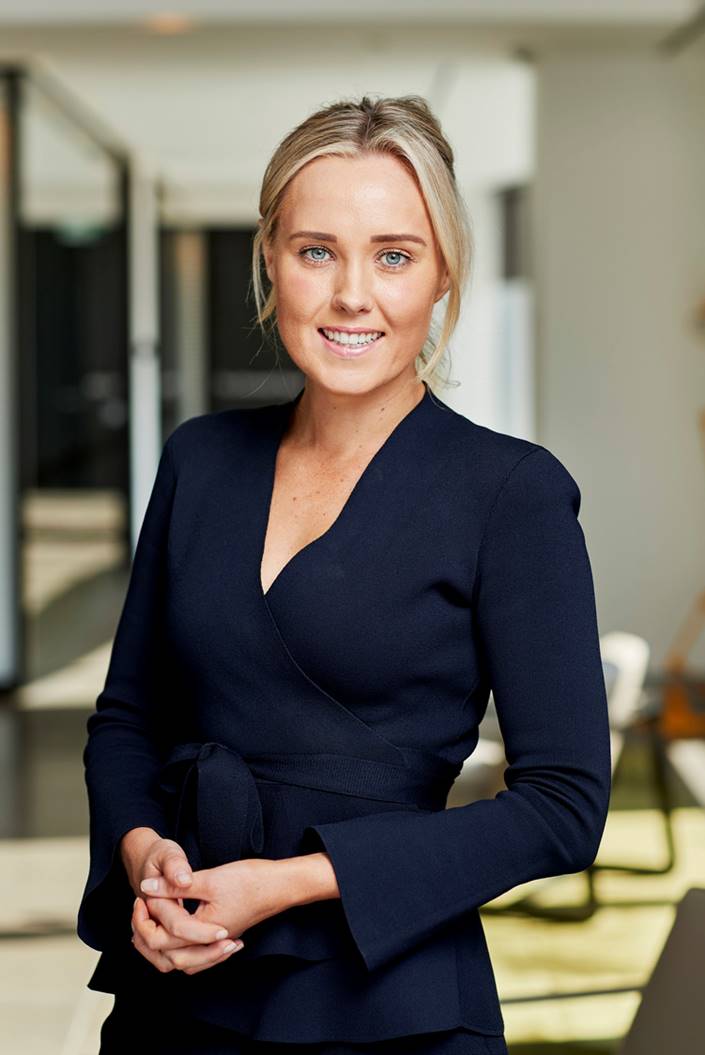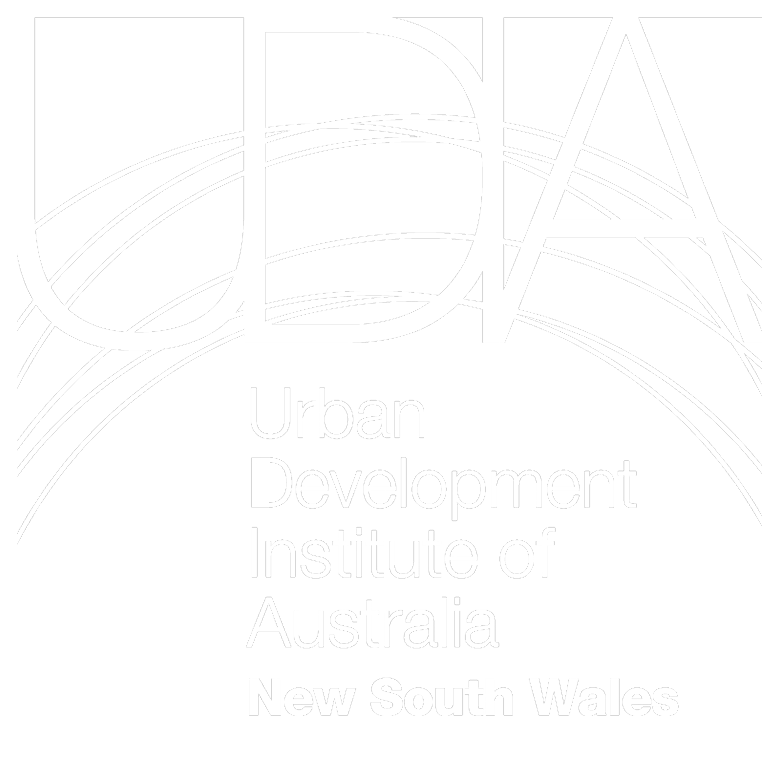One on One with Heidi Crawford, HR Manager, AT&L and Stephanie Partridge, Senior Development Manager, Goodman

HC: Today, I’m talking with Stephanie Partridge, a senior development manager with Goodman in Sydney about her experience working in the property industry. Can you tell me what you do as a development manager?
SP: At the moment I manage about a billion dollars’ worth of development product that’s currently under construction, including $150 million worth of infrastructure. My role is very diverse, and every day can be completely different, which is what I love about it. Typically, I would be on site twice a week and then in the office for rest of it.
I see my role as being like a conductor. Development Managers are responsible for the strategic direction of the portfolio, and if the portfolio is large enough you will have a range of technical specialists who will help you deliver on the portfolio’s desired outcome. You’re responsible for bringing new customers into your portfolio, and you have oversight over the project’s delivery to ensure the commitments made to the customer are met. You work with the relevant authorities to obtain satisfactory planning and infrastructure outcomes for the project. While the role has highly technical construction aspects, you also work across financial, marketing and legal functions.
It’s great to get out on site and see those tangible outcomes of your product being underway and delivered right in front of you.
HC: Do you enjoy working in the property and construction industry?
SP: It’s a great industry. I enjoy being in the office and on site, meeting with customers and seeing how your assets evolve. I love that you get a tangible result from all the hard work that you put in. I originally wanted to be an investment banker so I studied a Bachelor of Business, majoring in finance and economics. I thought I’d be dealing with shares, and derivatives, and effectively paper products all day long.
The year I commenced university, I started some work experience at Goodman. If it wasn’t for that, and for some family members telling me to try out property, I wouldn’t have even thought about commercial real estate as a career because I didn’t know that it existed – I didn’t even know that you could do a Bachelor in Property Economics. There’s also a lot of demand for roles in this area, which is good from a career perspective when compared to other industries.
HC: What do you like the least about working in the industry?
SP: There can be a lot of red tape involved in the planning process in New South Wales. I think the NSW Government has done a good job trying to accelerate the approval process of development applications during COVID, whilst also undertaking a prudent assessment. But I think ultimately, state and particularly local planning processes need to be streamlined and we also need to get the authorities on onboard and working collaboratively to get a good outcome for everyone. There has been progress, but there’s more to be done.
HC: What do you think we can do better as an industry to support diversity and inclusion?
SP: The industry, and all relevant bodies, need to lobby for diversity and inclusion at all different levels.
Businesses have a responsibility to ensure that there’s diversity of people applying for jobs, and then supporting the workforce once they have those jobs. But that’s just one piece of the puzzle. I think that the government, schools, parents and individuals all have a responsibility to support D&I across the board.
When I first became a development manager seven years ago, there were no other women working on my construction sites – there weren’t even female bathrooms on sites.
HC: How awful… are you seeing any change?
SP: Now when I go on sites, I see women who are doing physical work, who are in quite senior roles and a ton of female development managers too. We’ve come so far in the last seven years and I think it’s really important to acknowledge that.
Recently, I had a woman who was responsible for the QA for the concrete at one of my jobs, which is very important in a warehouse project. And I thought “How good is that.” On that same site, we have a large civil project underway and they’ve got women driving these huge machines. And I just thought, “How fabulous is this, we’ve got women who are dominating in all different fields across construction.”
I think the appointment of Susan Lloyd-Hurwitz as Mirvac’s CEO had a big impact. She’s put some incredible initiatives in place that have helped change the industry and impacted companies outside the industry. Alison Mirams, the CEO of Roberts Co, has also done a fabulous job of shaking up the construction industry by bringing in a five-day workweek on some construction jobs to give workers a better work and home life balance.
HC: Now obviously you’ve in a leadership role at Goodman. What’s the single biggest lesson you’ve learned about leadership?
SP: I finished an executive education course at Harvard Business School two years ago, which really allowed me to hone in on my leadership skills. One of my key takeways when it comes to leadership is the quote: “They may forget what you said, but they’ll never forget how you made them feel.”
HC: Yes, I love that.
SP: It really resonates with me and I think if you can be mindful of how you come across and work out what’s important to each of your reports and what drives them, then you’ll get a team that works very smoothly. Ultimately, leadership is a journey and there is always lots to learn.
Technical ability gets you to a point, but ultimately if you don’t have the emotional intelligence and motivation, then you’re going to struggle to lead the team and to achieve what you need to when you’ve got a substantial portfolio or business you’re trying to manage.
I read a Harvard Business Review article that examined some of the best performing companies across the world. The one thing they all had in common is a CEO who demonstrated what they called “level five leadership”, which is a leader who has great personal humility combined with an intense professional will. When you combine emotional intelligence, empathy, technical skills and professional drive, you’ll be able to achieve great outcomes.
HC: That’s really interesting. The next question is, what’s the most important changes you’ve seen in the industry?
SP: I think this probably goes back to what we’ve just been talking about. I wouldn’t underestimate how diversity has improved, and I think flexibility has assisted with this. We’ve seen flexibility change over the last seven years, with workspaces and how people work in the office.
Now, since COVID-19 we’ve seen companies become more flexible with where people work from.
So, I think there have been a lot of good changes in the industry in terms of diversity, inclusion and flexibility, but there’s still more to go at the senior level. I’ve seen some great younger people, with a diverse background, coming into the industry and I’m hoping we can continue to tap into the school and university systems to create an even more diverse pool of talent.
HC: The last question is one that we like to ask everybody, what’s your one thing?
SP: The one thing I’d like to focus on is supporting young people. I started in the industry straight after school, not even waiting for university. So for me, I’ve always been a supporter of age diversity. I think it’s important to be confident enough in your own role that you bring your best self to the role and that you are confident enough to promote and support those under you.
I think if there’s people there who are very young, but demonstrate great ability, expertise, and deserve that opportunity, well, you have to make sure you support them to get that opportunity. It’s upwards managing and ensuring they’re on the radar with the executive team and they’ve got what they need to continue to perform their job well.
I want parents to encourage children, especially girls, to know that there are great jobs in our industry that they might enjoy and that are a bit different to a typical role they might have considered.
HC: I think you’ve made some very valid points, and it does start with parents as well. I’m a parent of a girl and a boy, and I’m consciously aware of not stereotyping roles and making sure that I talk about jobs equally.
SP: I think that’s the thing. I think confidence is massively important and if you can instil that within your children, that holds a great amount of weight for them in the future with probably more challenging roles.
HC: Absolutely. Thank you so much for your time.
SP: Thank you.
This interview forms part of a UDIA D&I Committee initiative series to encourage and highlight more diversity in UDIA and the property industry. It is intended to highlight diversity by profiling our members through industry publications on a regular basis throughout the year. Thank you to Stephanie Partridge, Senior Development Manager, Goodman.
Since 2018, the Diversity & Inclusion Committee has been one of the key Business Advisory Committees for the UDIA NSW, focussed on improving and promoting diversity and inclusion in the UDIA and our industry. This year, we launched the ‘One Thing’ campaign – celebrating and sharing the ‘one thing’ that we’re doing to empower people by respecting, supporting and appreciating what makes them different, in terms of age, gender, ethnicity, beliefs, disability, sexual orientation, and education. What’s your One Thing?
